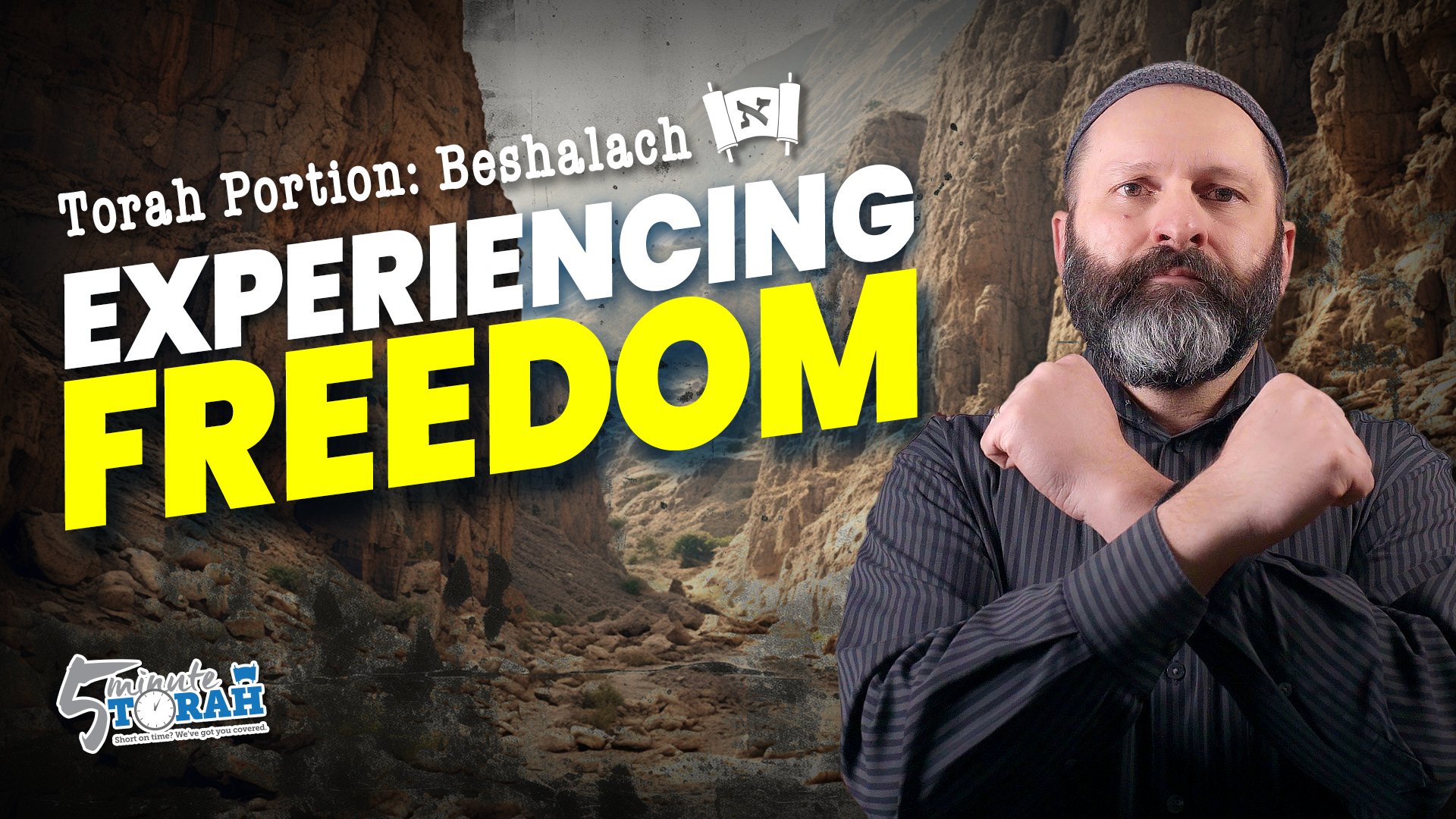The Mouth of Freedom
Series:

Parashat Beshalach (Exodus 13:17-17:16)
At the end of last week’s Torah portion we experienced the incredible deliverance of the Children of Israel from Egypt. Our reading concluded with the inauguration of the various ceremonies surrounding Passover and how these ceremonies are to assist in commemorating the exodus from Egypt. According to the beginning of chapter 13, the focal point for remembering the events of the exodus does not seem to be as much about eating a lamb year-by-year as eating matzah, unleavened bread, for an entire week of the year. Moses instructs the Children of Israel:
Seven days you shall eat unleavened bread, and on the seventh day there shall be a feast to the LORD. Unleavened bread shall be eaten for seven days; no leavened bread shall be seen with you, and no leaven shall be seen with you in all your territory. You shall tell your son on that day, ‘It is because of what the LORD did for me when I came out of Egypt.’ And it shall be to you as a sign on your hand and as a memorial between your eyes, that the law of the LORD may be in your mouth. For with a strong hand the LORD has brought you out of Egypt. (Exodus 13:6–9)
Besides the removal of leaven, there are two main components in this passage: 1) eating matzah for seven days and 2) telling the story of the exodus. Both of these tasks are accomplished by means of the mouth. These instructions are almost immediately followed by an interesting statement in our current portion:
Then the LORD said to Moses, “Tell the people of Israel to turn back and encamp in front of Pi‑hahiroth (Exodus 14:1–2)
At first this passage seems only to give the Israelite encampment. However, Rashi lets us know there is something special to learn from this. He tells us that Pi‑hahiroth has not always been the name of the location. He says that the site was previously called Pithom, one of the cities built by the Israelites (see Exodus 1:11), but that it is now called Pi‑hahiroth. Why Pi‑hahiroth? Because of a valley, a “mouth,” that cuts through the mountainous region on the eastern coast of Egypt. It became known as Pi‑hahiroth, or “Mouth of Freedom.” This location would forever attest to their freedom with a name reflecting this truth.
God had brought the Israelites out of Egypt to the Mouth of Freedom. However, they were not intended to remain there. It was at this location that things began to heat up. Here at the Mouth of Freedom they were trapped between the approaching Egyptian army and the sea. And although their present circumstances did not seem to reflect their freedom, we know that the difference between God’s perspective and ours is often vastly different. Fortunately, the God of the Universe knew that the great obstacle in front of them would melt away at His command. At the command of the LORD, the Children of Israel walked across the sea on dry land, and the Egyptians would never be able to pursue them again.
Hashem brought the Children of Israel to Pi‑hahiroth to begin their journey of freedom. The Children of Israel memorialized that moment by naming that location the Mouth of Freedom. It was a proclamation that they would never be slaves again. That proclamation is retold year-by-year after the sun has just dipped under the horizon and tucked itself in for the night.
Every year at the Passover seder, the Mouth of Freedom metaphorically moves from the eastern coast of Egypt to our dinner tables. During the Passover meal we sit together and use our mouths to declare our freedom through what we eat and what we say. We eat matzah and bitter herbs. We bless God for our food. We thank God for our freedom. We recount the story of our freedom to our children.
You have been brought to the Mouth of Freedom and you have been given a mouth of freedom. Your children need to know how God redeemed you. Your neighbors need to know the miracles He performed on your behalf. Your coworkers need to know how He has transformed your life. To refuse to proclaim that freedom is to deny that freedom and remain in bondage. Mark your starting point, bless God, feed your soul, tell your story.








